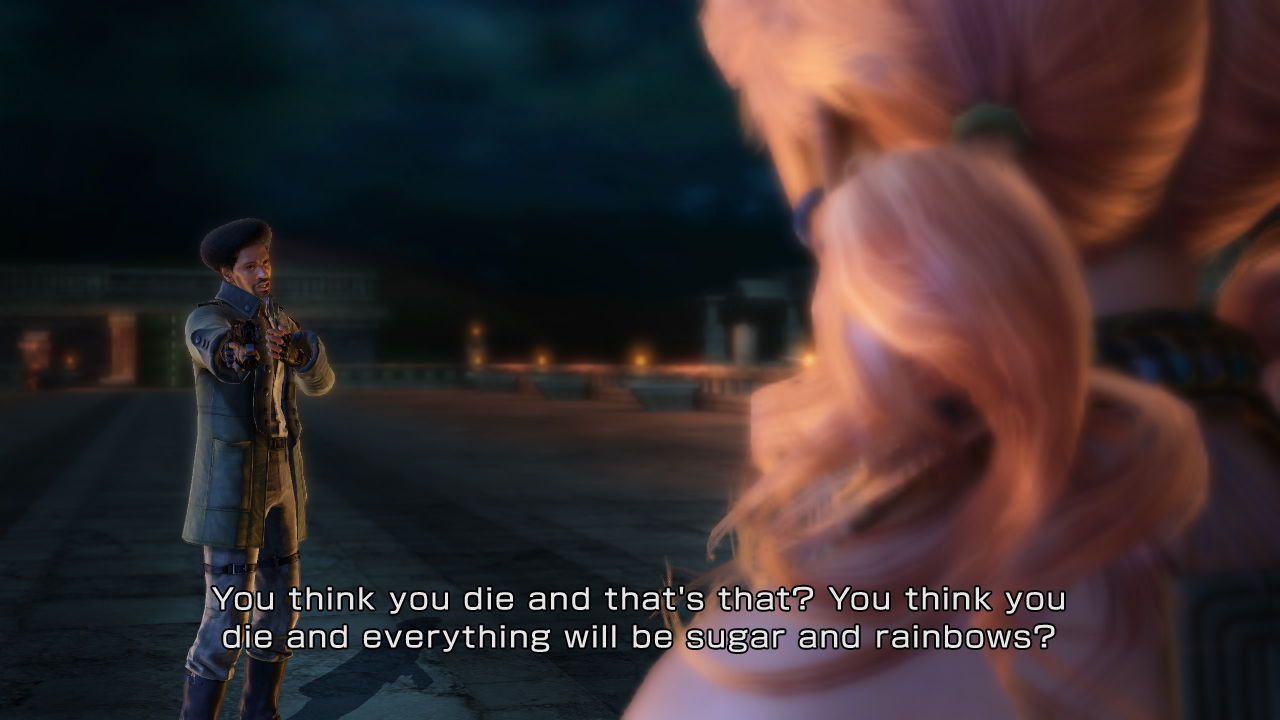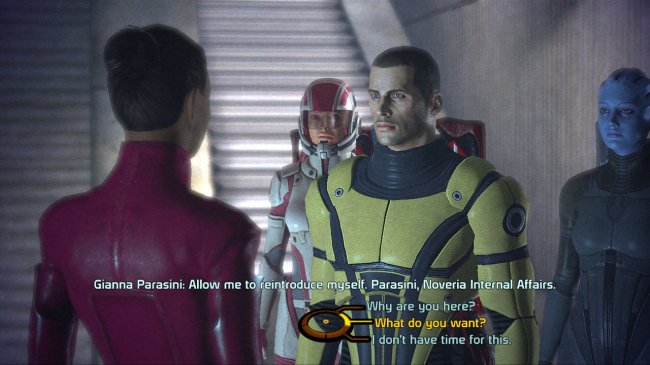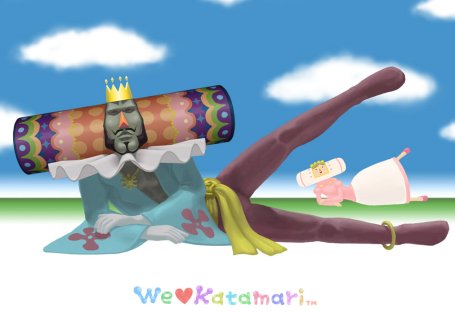This post has not been edited by the GamesBeat staff. Opinions by GamesBeat community writers do not necessarily reflect those of the staff.
On a recent IGN Beyond Podcast (Episode 130), Jessica Chobot, Colin Moriarty, Ryan Clements, Greg Miller, and Sam Bishop compared the Final Fantasy XIII and Mass Effect 2. Whether the comparison was justified or not, they went ahead and did it — and here's what I have to say:

During the course of the show, there was a point where Jessica Chobot mentioned the voice acting in Final Fantasy XIII, something for which Ryan Clements later had to justify as a notorious fault of Japanese games translated for a Western audience — and that in relative terms, Final Fantasy XIII actually did a competent job. So this got me thinking. Do we accept and purchase Japanese games, on the basis that they provide that certain characteristically Japanese experience that cannot otherwise be found in Western games — and forgive Japanese developers as a result for their traditionalism and resilience to change because they provide such an experience?

In other words, is the reason Japanese-style games exist today due to the fact that they provide such an experience, albeit, barely changed for ten years, that appeals to a core group of fans that very well may never die out?
I feel that with my experience playing both Final Fantasy XIII and Mass Effect 2 (each has been admittedly rather limited), I approach each game with an entirely unique mindset. With Final Fantasy XIII, I treat the cut scenes as if they were anime, and listen to podcasts when slogging through the linear world. Whereas in Mass Effect 2, I’ll find myself actively engaged, listening, and playing as my Commander Shepherd. Don’t get me wrong though – while both may provide very different experiences, each game has its own merits, and seem to satisfy me in distinct ways.

In the aforementioned podcast, another opinion Jessica Chobot voiced was that “Knowing that they have an English market coming out, why wouldn’t they just find a writer that could write for the English market … and do voice acting that could do it for the English market”.
Personally, I feel this sentiment almost couldn’t be any more narrow-minded, (which is ironic, considering that she later went on to use that same phrase when describing Greg Miller’s opinion regarding 3D television technology minutes later). The whole draw to Japanese-developed games is not only what they do well, but for me at least, it’s the quirky ways Japanese games are unconventional by Western standards.
Take an obvious example, the Katamari series, a set of games that are as enjoyable as they are unusual. From the ridiculous, ballerina-costumed King of Cosmos, to the out of this world music (no pun intended), Katamari Damacy alone had the effect of comedy and bewilderment on gamers. Such a sensation is a dire rarity from Western video games, which is one of the many reasons Japanese games have such a dedicated following.

Listening to this episode of Podcast Beyond had me reflect that while playing Final Fantasy XIII, I ended up forgiving many of the otherwise melodramatic and cinematically unacceptable (by Western standards) cut scenes. I think this is due to the way fans of Japanese media consume their medium, which is far less as involved because it’s likely he or she is aware of the fact that the story is so convoluted, that there’s almost no way of understanding it. So gamers get into this mindset where they don’t bother over-analyzing what exactly is happening, but rather, merely enjoy the nonsense as it unfolds.
A fitting example would be the cut scenes found the Metal Gear Solid franchise – even Kojima himself has gone on the record, saying that he can barely grasp what goes on in the franchise. In a post on ThatVideoGameBlog.com, Kojima has said, ““…I personally get confused too about the whole timeline and saga of Metal Gear Solid. This is especially tricky when you create the future first and then go back in time to create something new. There are a lot of small aspects where sometimes it doesn’t match completely.” This truly isn’t all that surprising. Did anybody actually understand anything that was going on in Metal Gear Solid 2: Sons of Liberty? If Kojima can’t figure it all out, we’re all doomed to a perpetual state of confusion when it comes to all things Metal Gear.”
So knowing this, there’s clearly some reason why we enjoy Japanese-developed video games. Whether it’s the risk-taking, the lack thereof, or that classic Japanese RPG style Japanese video games have come to represent, fear not!, Japanese video games are here to stay. With their characteristically shameful dialogue, punitive boss battles, whiny, introverted teen characters, and all, I don’t imagine Japanese games going anywhere despite their seemingly archaic qualities, which may lead many a famous video game analyst to go on the record, claiming that Japanese games may well find themselves eating the dust of the Mass Effects, Fallouts, and Modern Warfares of this largely western-based gaming industry we’ve come to recognize.
The first game I ever played was Japanese, I play Japanese games to this day, and I will no doubt continue to do so for as long as I am a gamer!

Yes!
